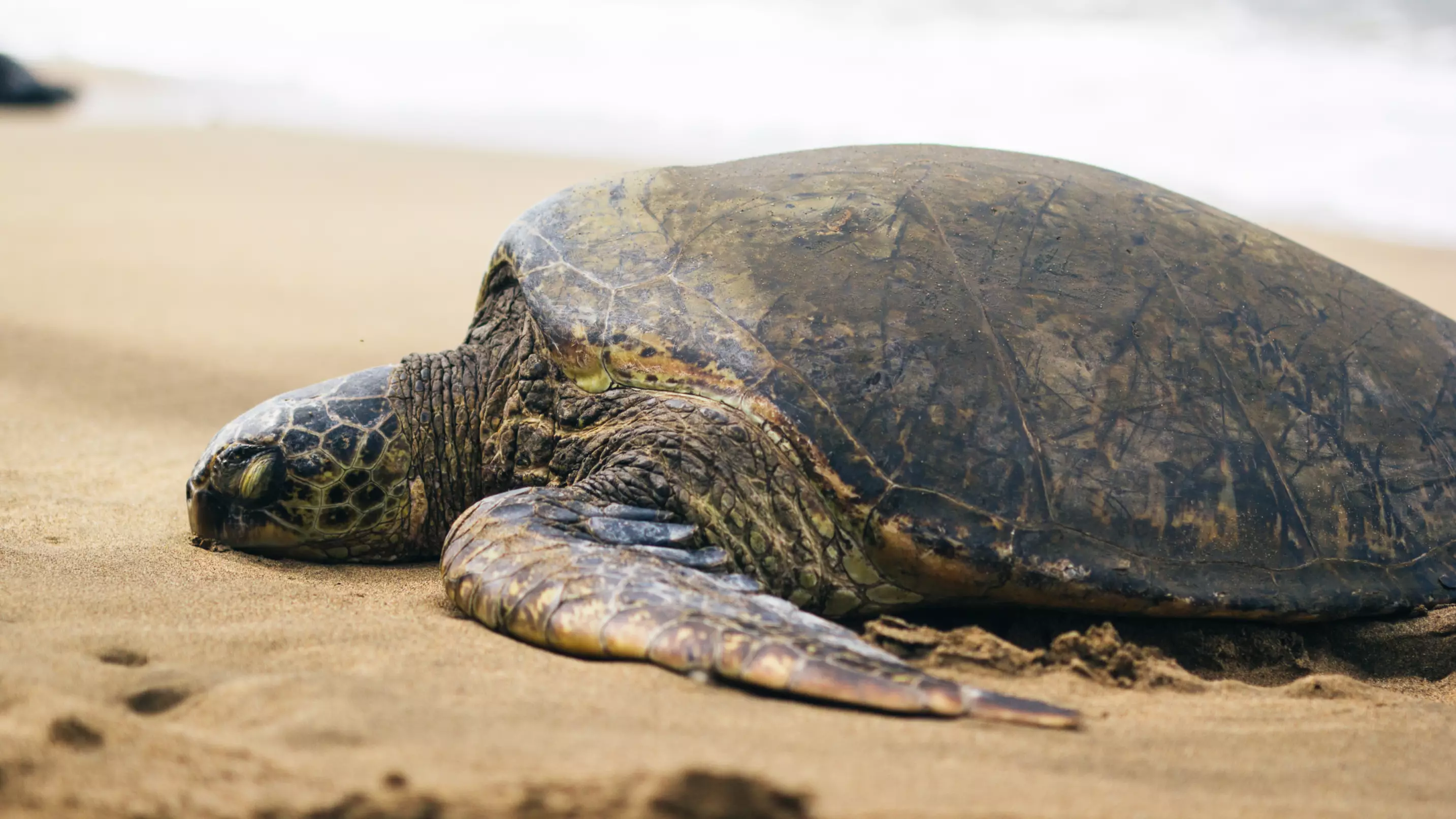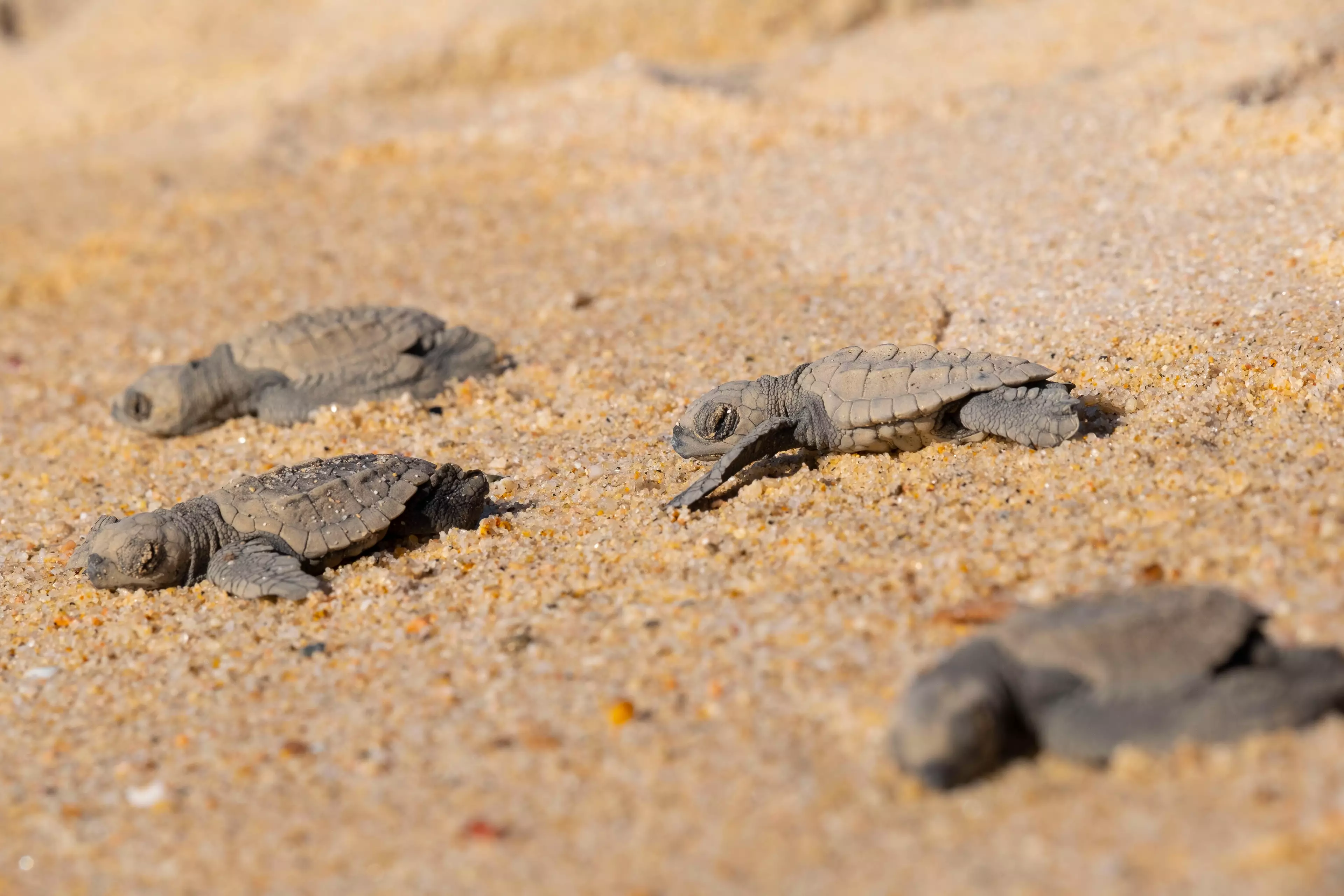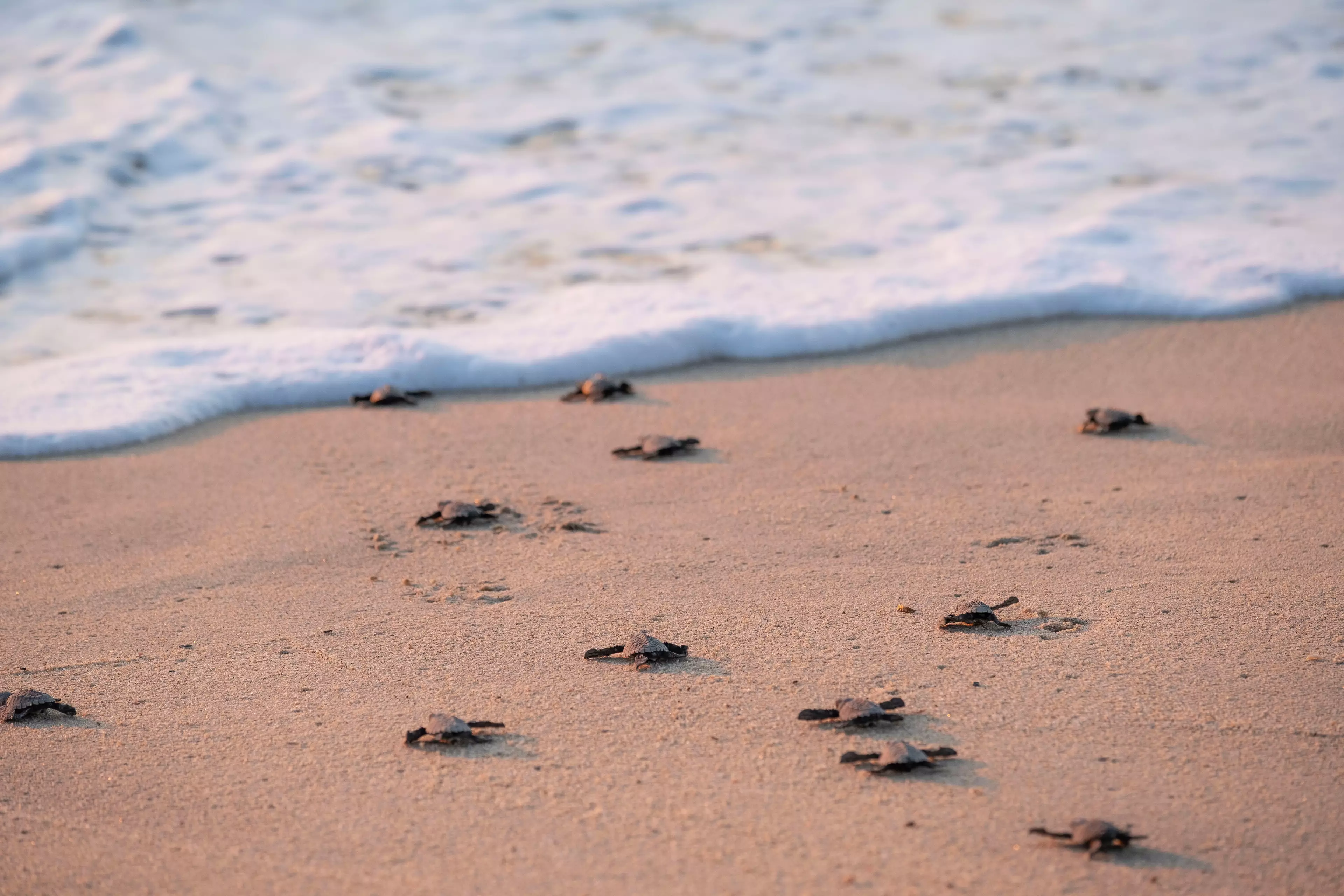
A record number of endangered turtles have hatched on a northern Mexico beach.
In a rare silver lining of the coronavirus pandemic, as many as 2,250 olive ridley sea turtle eggs were able to hatch into the Gulf of California, thanks to reduced human activity.
Usually, we wouldn't see more than 500 of the rare animals born.
Advert
However, less fishermen and tourists on the beach meant that the turtles were able to hatch without any disruption and ended up surviving.
The babies were then released by the Seri indigenous community in Sonora state, according to BBC News.

The olive ridley turtle is also commonly known as the Pacific ridley sea turtle, because it's found in the warm waters of the Pacific, Indian and Atlantic Oceans.
Advert
It typically lays its eggs on the beaches of a various Mexican states between May and September.
It is one of the smallest of its kind and gets its name from the olive green colour of its heart-shaped shell.
Olive ridley turtles are classed as "vulnerable" and currently reside on the International Union for Conservation's Red list, despite the fact it's abundant compared to other sea turtles.

The US also currently list the creature as 'threatened'.
Advert
Its 'vulnerable' status is due to the fact the turtle population has worryingly decreased by 50 per cent since the 1960s.
Mexico first banned the capture of sea turtles in 1990, and has fines in place for anybody who is caught hunting them.
According to the WWF, the creatures are still under threat from crimes including poaching despite various countries having laws in place to protect them.
Advert
"Olive ridleys face serious threats across their migratory route, habitat and nesting beaches, due to human activities such as turtle unfriendly fishing practices, development and exploitation of nesting beaches for ports, and tourist centres," they say.
"Though international trade in these turtles and their products is banned under CITES Appendix I, they are still extensively poached for their meat, shell and leather, and their eggs, though illegal to harvest, have a significantly large market around the coastal regions."
The wildlife charity added: "The most severe threat they face is the accidental killing of adult turtles through entanglement in trawl nets and gill nets due to uncontrolled fishing during their mating season around nesting beaches."
If one good thing has come from this pandemic, it's the fact that these turtles have been given a chance at life.
Featured Image Credit: Shutterstock